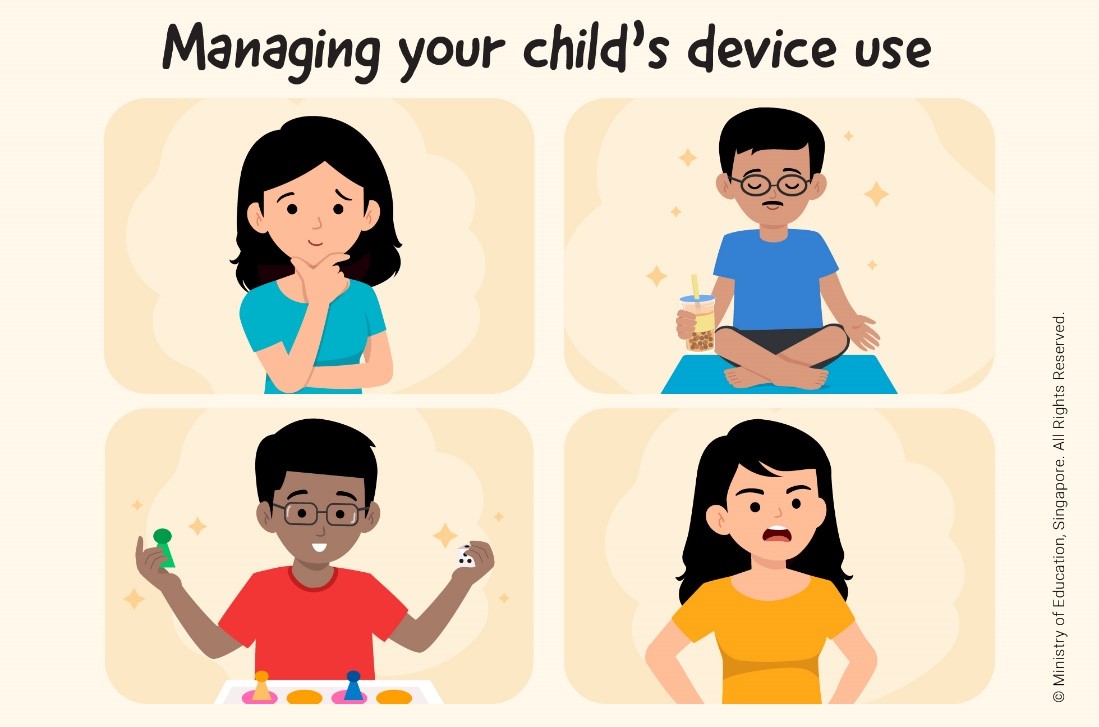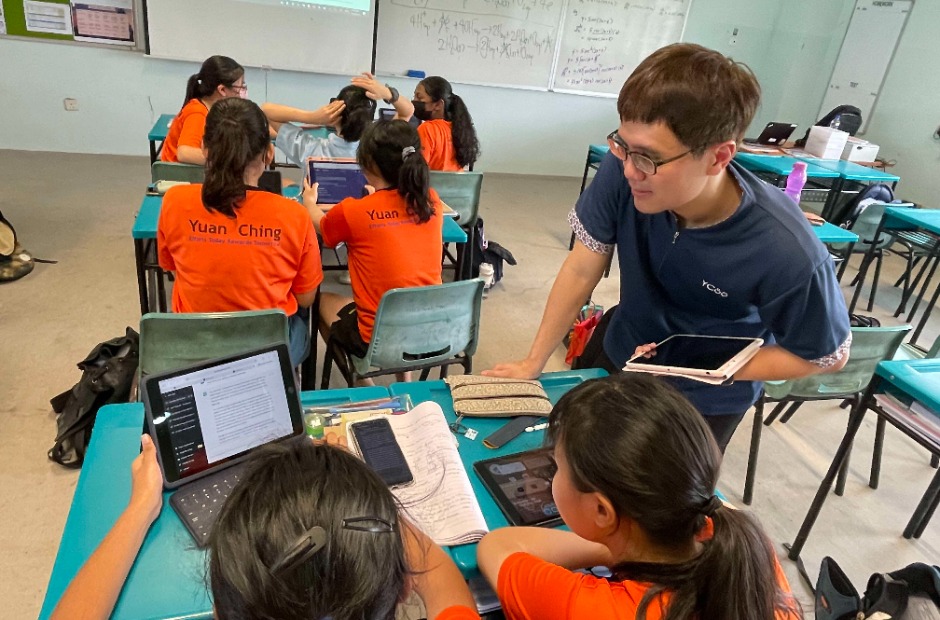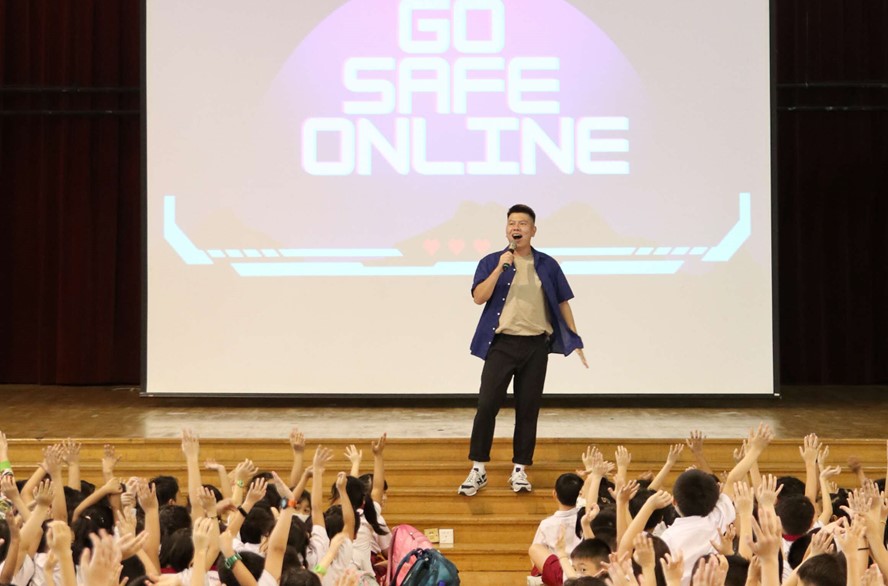Exploring Online, Safely and Confidently
11 Dec 2012

Cyber wellness ambassadors at Damai Secondary School not only take the lead in learning about cyber safety, they also share what they have learned with parents of their schoolmates.
In cyberspace, trends come and go, but many young people forget that fleeting moments in online interactions can have a lasting impact in real life. “When you say things online, there’s no way you can actually retract it,” says Mr Toh Thiam Chye, principal of Damai Secondary School. He points out that on social media platforms such as Facebook and Twitter, a deleted comment might still be visible as friends could have shared or retweeted it to other people.
Similarly, Mdm Asha Devdas, Head of Department for Character & Citizenship Education/Pupil Well-Being at Fengshan Primary School, explains, “What you write on the Internet can be hurtful.” The tone or context of an online remark, even a well-meaning one, can be easily misconstrued. She adds that it is important to teach pupils to recognise how words may be read or interpreted by others, so that they do not unwittingly become cyber bullies or victims of cyber bullying.
Learning to navigate the Internet safely is the focus of cyber wellness programmes at both these schools, which have been integrated into the curriculum as well as activities involving both parents and pupils.

An inter-generation bootcamp on ICT and cyber wellness organised by Fengshan Primary was an opportunity for pupils’ families, including grandparents, to learn together about surfing online safely.
Learning to be responsible
At Fengshan Primary School, cyber wellness is taught as part of its character development programme for upper primary pupils. These weekly classes cover topics such as acceptable language and topics during online chats, responsible commenting on blogs and social media, and even libel and copyright. “We also talk about cyber bullying,” says Mdm Devdas. “While cyber bullying is not done face-to-face, we tell pupils that cyber bullying can still be emotionally damaging to their friends.”
In Pri 3 and 4, elements of cyber wellness such as netiquette are woven into interdisciplinary project work lessons. The school also appoints pupils as cyber wellness ambassadors who present talks during assembly and recess. For parents, besides regular talks by MCYS- (now MSF-) approved cyber wellness experts, the school also hosts hands-on sessions with families to talk about their online habits. “We sit down together, and the child will tell the parents about the websites that he or she frequents. In this way, the parents learn what their child is doing online,” explains Mrs Vivien Low, principal of Fengshan Primary Schools.
Even grandparents are roped in. “Increasingly grandparents are the primary caregivers,” observes Mrs Low, “so we want them to be unafraid of computers.” Mdm Shanaz Nazeeha, Head of Department for InfoComm Technology at Fengshan Primary School, adds that some parents, unfamiliar with the Internet and worried about online risks, want to keep their child from using the Internet altogether. To help them, the school’s Allied Educators would inform parents about websites with educational value so that the family can venture online with greater confidence.

To raise awareness of cyber wellness issues, students at Damai Secondary School have designed posters highlighting common risks such as the careless sharing of personal information.
At Damai Secondary School, elements of cyber wellness are embedded into regular classes. For instance, students might compose an email or a blog entry in their Mother Tongue. Apart from acquiring language skills, students learn about netiquette, how to assess whether websites are reliable and trustworthy, and how to respond to inappropriate language or posts.
Also, having noted growing concern about cyber wellness during meet-the-parents sessions, the school plans to introduce what Mr Toh calls a “tripartite agreement” come 2013, in which the school, parents and students will ink their commitment to a set of guidelines for safe and appropriate Internet behaviour. This move, he says, will help remind parents that they have a role to play in cyber wellness at home.
Finding balance, building trust
Mr Toh observes that many young people go online to find acceptance or popularity, as their parents may be too busy at work to give them attention and a listening ear. Echoing Mdm Devdas, he encourages families to strike a balance, as it is neither possible nor desirable to look over a child’s shoulder whenever he or she is online. “That can be quite stifling,” he says.

During a recent workshop at Fengshan Primary School, parents learned how to supervise their children’s online gaming activities.
What parents can do, he advises, is to build up mutual trust over time and invite their children to share about their online activities without being intrusive. “Take an interest in what they do online,” he suggests. “Ask them, maybe over dinner, about the latest topic his or her friends are talking about online.” This will help bring to light events, such as name-calling among classmates or other undesirable habits that may require follow-up action.
Also, should parents decide to “friend” their child on Facebook or follow their tweets, Mr Toh suggests adopting a light touch. “Be a silent observer,” he says, adding that parents should talk to their child face-to-face rather than making comments online if they have any particular concerns.
Above all, Mr Toh reminds parents, “The technology is already here, so why not make full use of it for learning, socialising and sharing of information?” Parents who become acquainted with their child’s regular online habits will also be better placed to recognise situations that require their attention, such as if a child has a loss of appetite, or becomes withdrawn amid unusually heightened online activities.
There are no hard and fast rules on cyber wellness, but the most vital thing, in Mr Toh’s view, is that parents “build a strong relationship with the child” and nurture their resilience to handle the negativity they encounter online – a skill that is applicable in real life.

.jpg)
.jpg)


